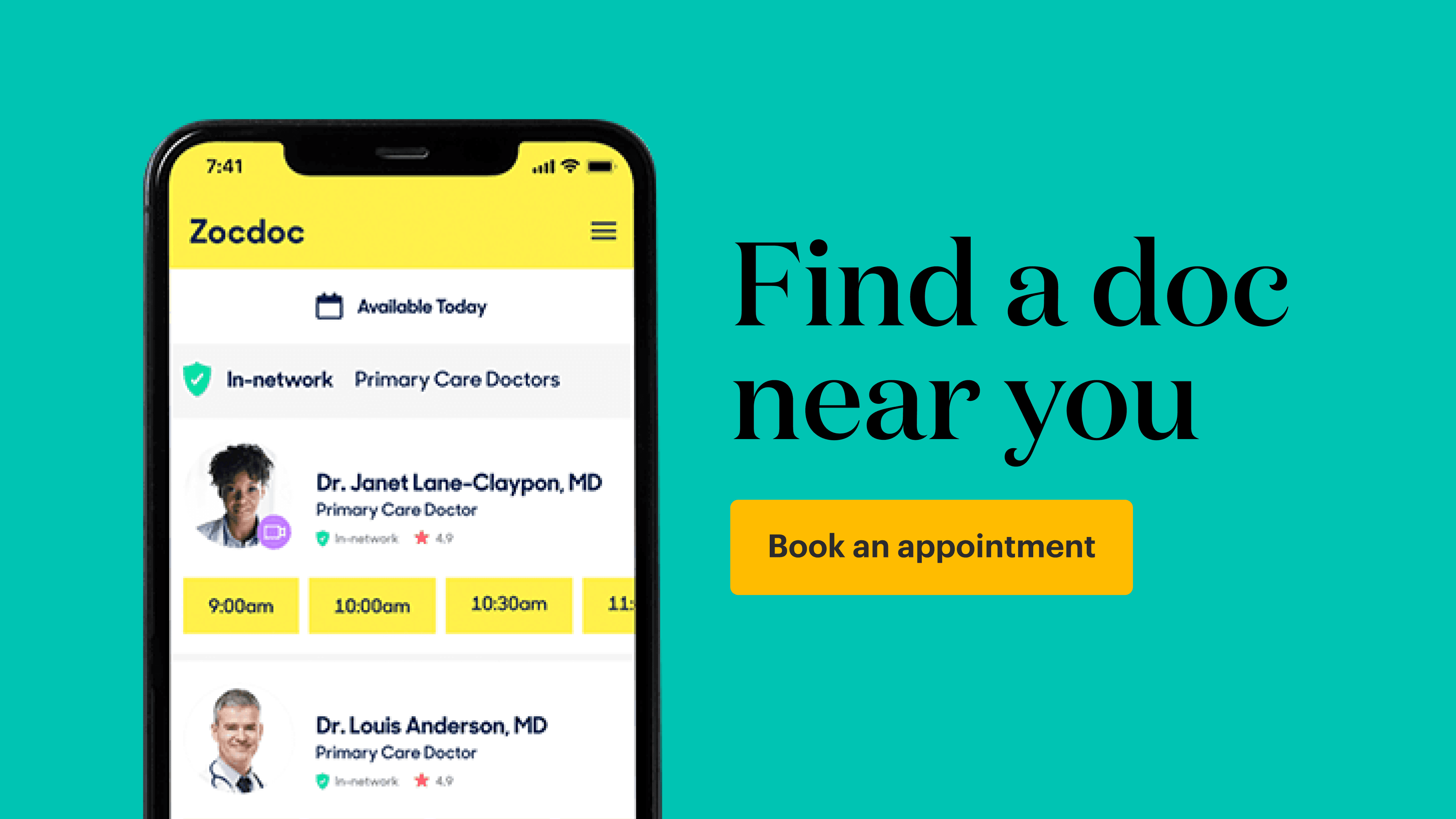The Story
Having a baby can be both exhilarating and overwhelming. Enter: a dream team that can help make the birthing experience and postpartum transition smoother (or just slightly less sleep-deprived).
What are you talking about?
Doulas and midwives and nurses, oh my. These words have become ubiquitous in the birthing world, but there’s often confusion around the differences between these designations. We called up Simmone Taitt, doula and founder of Poppy Seed Health, to help break it all down.
What’s a doula?
A pregnancy, labor, and postpartum BFF. They provide emotional and well-being support — meaning tips and tricks from how to breathe during labor to breastfeeding techniques. They usually aren’t trained to provide medical care, and will defer to your OB-GYN or midwife for advice on things like prescriptions and diagnoses. They’re meant to serve as the patient’s advocate and research suggests that having the support of a doula may reduce the need for medical intervention during labor, (think: fewer C-sections and less pain meds). In a survey published in 2013, 6% of American moms said they used a doula, and it’s up to you how often and long you work with one. There are different types of doulas (and some may perform services in multiple categories)…
Birth doula…The one who’s there for the entire pregame and game. Before labor, doulas will discuss your birth plan and techniques to make labor as easy as possible (which can be a tall order). During labor, doulas may offer comfort through pain-relief techniques (think massages, cold compresses, shifting body positioning), breathing exercises, and laboring positions. They’re also your advocate in the room, making sure doctors understand and respect your needs.
Postpartum doula…The one who’s there for the postgame. The postpartum doula is a new mom’s guide through the “fourth trimester,” providing support on everything from diaper changes and breastfeeding to mental health concerns and integrating a new baby into your existing family.
Full-spectrum doula…The one who’s there for the unimaginable. They do everything from coaching women on what to say when people ask about the baby to supporting them through an abortion or miscarriage (a reported 10% to 15% of pregnancies end in miscarriage).
What’s a midwife?
A trained medical professional that can take the place of an OB-GYN. Some moms-to-be may have both an OB-GYN and a midwife, but most do one or the other. Many midwives are registered nurses (aka CNMs or “certified nurse-midwives”), and they’re common in most of Europe. But in the US, only about 8% of births use midwives. Certified nurse midwives are approved to perform a lot of the same tasks as an OB-GYN, including delivering a baby vaginally, providing prenatal care, and performing gynecological exams. A midwife stays with you throughout labor but doesn’t come home with you post-birth. Midwives often focus on lower-intervention (re: no drugs) births and may advocate for vaginal births over C-sections, which they aren’t certified to perform. Midwives can be present for either hospital or home births. OB-GYNs are recommended for delivering high-risk pregnancies, but you may opt to have a midwife on your team, too.
What about nurses?
A critical part of the birth team when you’re delivering in a hospital, labor and delivery nurses do way more than feed you ice chips. They’re meant to serve as the patient’s advocate, communicating needs and concerns with a doctor or midwife, depending on who’s delivering the baby. Nurses may be responsible for tasks like fetal monitoring and administering IV medications. But unlike a doula or a midwife, the relationship between mom-to-be and labor nurse usually isn’t established beforehand, and they’re often assisting multiple pregnant women at once. This means they aren’t necessarily able to provide the same 1:1 level of care as a midwife or doula.
Andddd night nurses? What’s their deal?
Think of night nurses like postpartum sleep savers. They’re a person you hire to stay up with the baby all night and wake you just to feed, hopefully letting new parents get more rest than they would otherwise. There’s no set length of time that new moms work with them — it’s up to parents. They’re experts on sleep training and swaddling and may help ease the confusion of the early parenthood days.
How much does all of this cost?
It depends. Birth doulas typically cost between $500 - $3,500 depending on location and level of experience. Postpartum doulas typically cost between $20 - $70 an hour, also depending on location and level of experience. Most people pay out of pocket for doulas but some insurance companies and employers may pay for part of the care. A few states cover doula costs through Medicaid, and there’s a push for more to join in. Midwives are more likely to be covered by insurance (especially if they help you in a hospital), and costs for a midwife-led home birth without complications can range from $3,000 - $9,000. An OB-GYN-led hospital birth (also covered by insurance) can cost thousands more. Night nurses are pricey and out of pocket, with costs ranging from $20 - $40 an hour, or $200 - $480 for a 10 to 12-hour night shift.
How do I find the right person for me?
Talk to your friends. Referrals are powerful and can help you get started with a list of options. Networks like DONA International and Poppy Seed Health can also play matchmaker for you and the doula, nurse, or midwife of your dreams. Services like Lullaby Baby Nurses can help you snag a night nurse (and more Zzzs). All of this may help. None of it is a given, and it’s a huge privilege for those who can afford it.
theSkimm
You’ve heard the phrase “It takes a village to raise a child.” It also takes a village to birth one. A person entering motherhood needs and deserves all the support they can get. But certain types of support — like doulas, midwives, and night nurses — are only available to those who can afford it. Our health care system needs to do better, but in the meantime, know your options and what they cost so you can advocate for yourself.
Simmone Taitt, doula and founder of Poppy Seed Health, was consulted for this article.
This content is for informational and educational purposes only. It does not constitute a medical opinion, medical advice, or diagnosis or treatment of any particular condition.
Subscribe to Skimm Well
Sign up here to receive our wellness newsletter filled with actionable advice, expert-vetted content, product recs, and more — delivered directly to your inbox.

